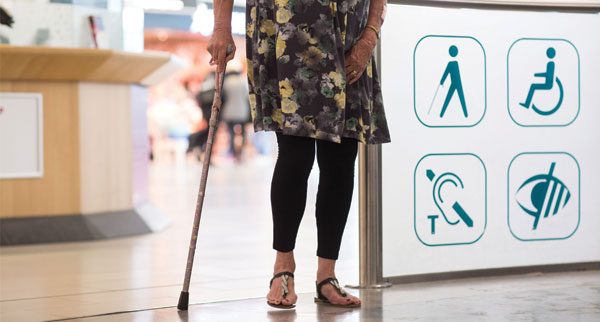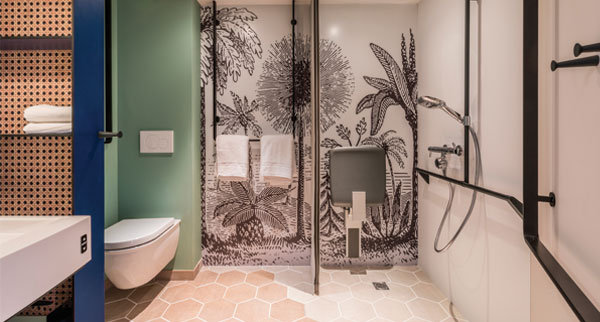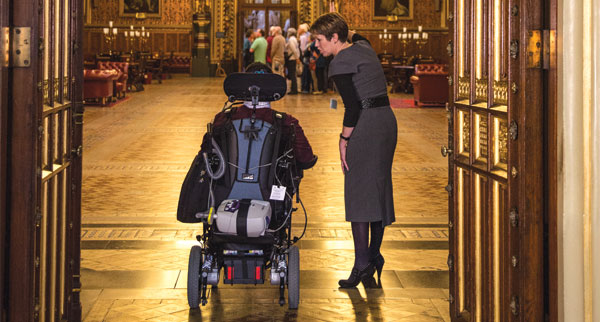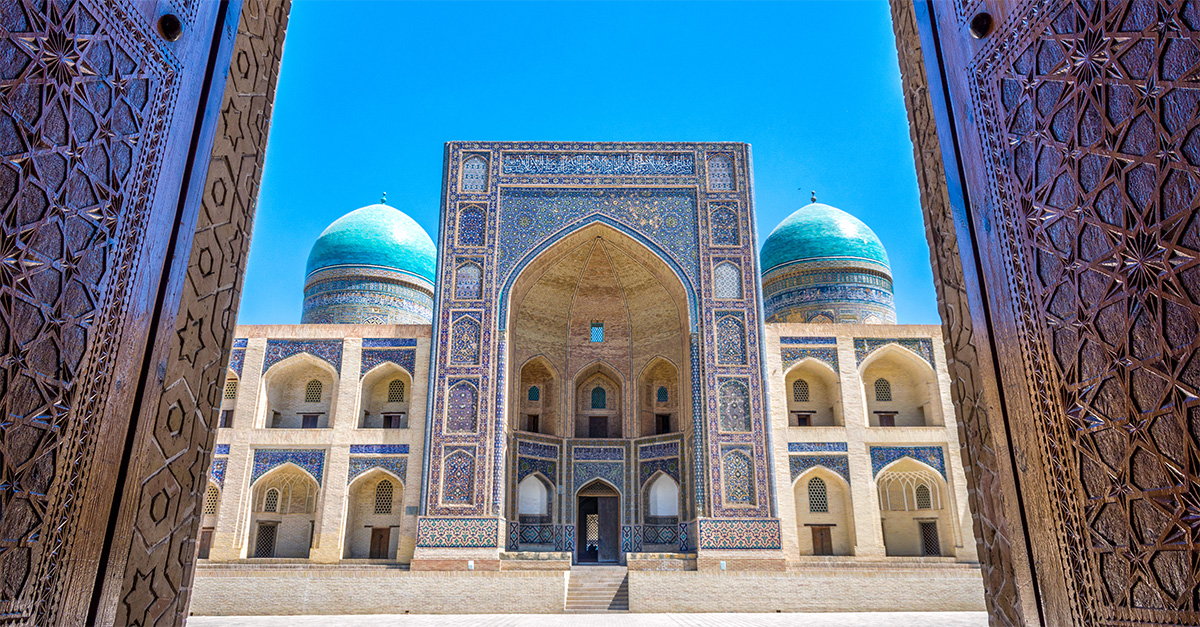Pictures: Shutterstock; Abcapress / Francesco Luciani; Visit England / Luke Rogers; Barbara Neumann
Ask the right questions to ensure an accessible holiday, says Katie McGonagle.
Like this and want more details? Click here to download and save as a PDF.
If half your clientele said they weren’t getting good customer service, you’d be asking yourself what could have gone so wrong, and doing everything you could to put it right.
Yet that’s exactly how travellers with disabilities or other accessibility needs feel, according to the latest research from Amadeus. It found that 46% of the 800 travellers surveyed had encountered a “lack of skilled customer service” in the booking process, and “a void of information regarding destination accessibility”.
Knowing the right questions to ask is a good start, so we canvassed specialists from across the sector to see what to watch out for when booking an accessible break. And if this sounds like a niche issue, it’s not; the accessible travel sector in the US and EU alone is estimated to be worth $70 billion. More than two billion people around the world have some sort of accessibility needs, and the figure is tipped to rise, so if you’re not fully switched on to what your clients need, you’re missing out on a potentially lucrative customer base.
Airport assistance
Don’t let clients be put off by the first leg of the journey – UK airports are well set up for those with mobility issues or hidden disabilities such as autism or dementia.
Look online in the first instance, as airport websites offer guidance – from walking distances and disabled parking to detailed notes on mobility aids, accessible toilets and how to get extra assistance – plus contact details to notify the airline of your client’s needs, usually required at least 48 hours in advance.
Gatwick has led the way, becoming the UK’s first autism-friendly airport last year and introducing a hidden disability lanyard to alert staff members that a passenger might need more time to go through security, or need to stay near a family member; 8,000 lanyards have been handed out since May 2016. Next year, a new sensory room and special-assistance lounge will open in the North Terminal, and more specialist toilet facilities will be added.

Sara Marchant, Gatwick stakeholder manager, says: “We know a significant number of passengers have either a physical or hidden disability and we are focused on making sure these passengers have the best experience possible.
“Poor communication is often the reason why special-assistance services can fail to deliver a satisfactory service. With this in mind, the travel industry must make it as easy as possible for customers to indicate that they have special-assistance needs. Ideally, providers should ask customers if they require assistance at an early stage in the booking process, and maintain communication.”
Around 80% of flights arriving at Gatwick include passengers with reduced mobility, but a quarter of them don’t notify the airport of their requirements in advance, so make sure you’re communicating your clients’ needs to ensure a smooth journey through the airport.
Staying in style
“Just because you can’t walk unaided doesn’t mean you’ve lost your sense of style,” says Robin Sheppard, chairman of Bespoke Hotels, which runs awards to reward design innovation in the accessibility sector.
Guests with disabilities have long been expected to like it or lump it – if a hotel can even guarantee an accessible room, the options are often limited and lacking in inspiration, and the chances of a suite or sea view negligible – but things are slowly starting to change.
Sheppard adds: “Enlightened accessible hotels are now moving on beyond being purely practical to take in design considerations as well. Bespoke Hotels strongly believes the industry has a moral obligation to improve its attitude towards people with disabilities.”
“The industry must make it as easy as possible for clients to indicate they need special assistance.”

In a bid to avoid the stigmatisation of booking an accessible room, AccorHotels has developed the Smart Room concept, with developments that are useful to all guests, disabled or not. Rooms will feature a tablet to adjust lights and music or to close the curtains, a TV that can swivel up to 180 degrees, and a bathroom equipped with folding shower seat, adjustable washbasin, and grab bars that double as towel rails, among other innovations.
Don’t forget to ask about the rest of the hotel – if the Michelin-starred restaurant or that gorgeous rooftop bar that sold the property to your client is up a set of steps, they’re going to feel short-changed if they can’t access it.
The same applies to the kids’ club, as provisions for children with special requirements can vary widely. Mark Warner has a form for parents to fill out so the head of childcare can assess whether one-to-one care or a different kids’ club age group is needed, provided they have the information in advance.
The situation is improving at home too. Sand le Mere Holiday Village in Withernsea, on the Yorkshire coast, opened a sensory room for children with autism, Asperger’s syndrome and ADHD earlier this year. It’s filled with tactile equipment, brightly-lit bubble tubes, wall art, multi-coloured flooring and bean bags, along with a separate quiet room where parents can comfort a child in distress.
Easier attractions
Once you’ve got the travel and accommodation sorted, there’s still the matter of the holiday itself – if guests are to get the best out of their break, it pays to research accessible attractions.
That should be easier to do on domestic breaks, as tourism suppliers start taking up the call from VisitEngland and VisitScotland to publish detailed accessibility guides online, outlining crucial details such as the width of doorways for wheelchair users and access for people with visual impairments. With research showing this market was worth £13.3 billion in England and Scotland in 2015 – covering day trips, overnights and longer stays – UK providers are recognising the potential value.

“Remember other people are travelling too, so the focus of the trip shouldn’t be on one client’s disability.”
Travellers need not fear more exotic destinations, however. This year, InsideJapan Tours added a 10-night Wheelchair-Accessible Golden Route, using selected accommodation and transport to ensure a seamless journey from Tokyo to Kyoto and Osaka (from £3,180, excluding flights). The Japan specialist has also introduced accessible street food tours in Tokyo and Kyoto which can be included in tailor-made itineraries.
InsideJapan’s accessible travel specialist, Ali Muskett, says: “The most important factor to consider when putting together a holiday for a client with a disability is that every client will be different and have different requirements. Remember other people are travelling too, and the focus of the trip shouldn’t be the disability. We may be doing more in the background to make sure the trip runs smoothly, but ultimately the client is booking the holiday of a lifetime, just the same as anyone else we work with.”
Top tip
Find tips on accessible attractions in Germany at germany.travel
Ask the experts
Philip Scott, managing director, Can Be Done
“Agents must never be afraid to tell a client if facilities aren’t available, but should offer a suitable alternative. We are more than happy to discuss options while the client is sitting with the agent.”
Niamh Duffy, PR manager, Limitless Travel
“What is accessible for a person with limited mobility is different for a wheelchair user, for example. Don’t be afraid to ask clients about their care requirements – it is important for both the travel agent and the customer that they receive what they need from their holiday.”
Harry Wales, assistant manager, Air Viceroy, Kent
“A villa gives you more space, but you’ve got to ask if it’s suitable for the type of disability you are dealing with. Being disabled myself, I would rather be asked questions so my holiday requirements are met. Just bite the bullet and ask; the customer will have all the answers.”




